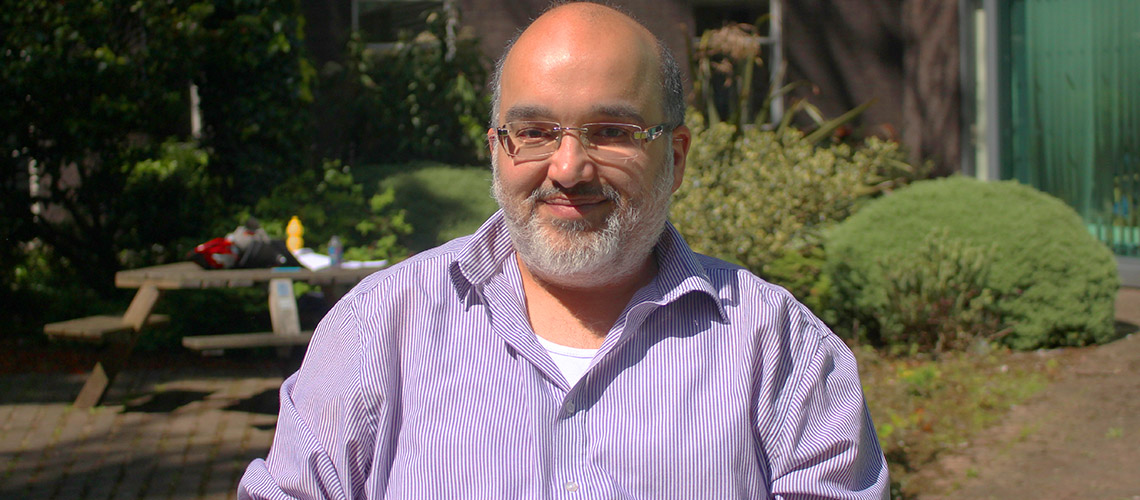Driving positive change in disability equality
Postdoctoral Research Associate, Hamied Haroon has been at The University of Manchester for 20 years, making the move from a student to a member of staff. As a wheelchair user, Hamied’s disability is visible, however he champions the cause of equality for all disabled members of staff, including those with ‘invisible’ disabilities such as mental health issues.

His obvious passion for the cause has led to the creation of the National Association for Disabled Staff Network, which he’s always keen to discuss.
I joined the University in 1998 as a master’s student in Medical Physics. After graduating I went on to do a PhD at Manchester in Medical Imaging, looking at advanced MRI techniques in cancer. It was a really enjoyable time and got me to some amazing conferences all over the world. I even got to go to Hawaii.
The biggest challenges I’ve faced at Manchester are all based around the fact that I’m a wheelchair user. Physical access to buildings has been a problem in the past, as has desks not being the correct size and not being able to access certain books in the library.
The Faculty has helped me by providing me with a support worker, who is paid for by Access to Work. My support worker is always with me to assist me with anything that I need and they help me out a lot, especially at conferences. In addition to this my department went totally out of their way to help me. For example, they raised the height of my desk without any funding, they put a ramp in to the quad for me to access the building and they sorted out a ramp for the fire exit. Estates have also been a massive help and have made my life so much easier by ensuring that there are automatic doors in place down the corridors where I work.
My involvement with the National Association for Disabled Staff Network stemmed from my work with the University’s Equality and Diversity team. They were setting up the network just as I started as a member of staff and I somehow ended up as the chair and things went from there. We managed to make the University one of the first in the country to provide support for all disabled members of staff through the Disability Advisory and Support Service and since then we’ve gone from strength to strength with other initiatives.
We held our first national conference in 2014 which was put on by disabled staff at the University for all other disabled members of staff at other universities across the country. Around 100 people attended. We had talks focusing on ‘invisible disabilities’ such as ADHD and autism, as well as mental health issues. People from the NHS came in to talk about HIV and we had numerous people from other universities tell us that they were thinking about setting up their own network.
One thing that we established at this particular conference was that The University of Manchester was a lot more supportive than other institutions when it came to disabled staff. It was a great success and ultimately led to the establishment of the National Association of Disabled Staff Network which currently spans across 50 universities in the UK.
My hopes for the association going forward are basically to continue to grow in a way that will continue to help disabled staff at all universities. Every year since we’ve been established we’ve held a national conference and this year we are taking it to London to make it more accessible for universities in the south. We also want to create initiatives with other disadvantaged groups. I recently met with the chair of the LGBT staff network in higher education and we’ve come up with a plan to do a cross sector event with LGBT next year that we could hold here at the University. At the moment it’s looking like a one day conference where we’ll get researchers from the LGBT and disability sector to present their work. It should be fascinating.
Learn more about the Disabled Staff Network and the policies in place at the University which aim to support disabled members of staff.
